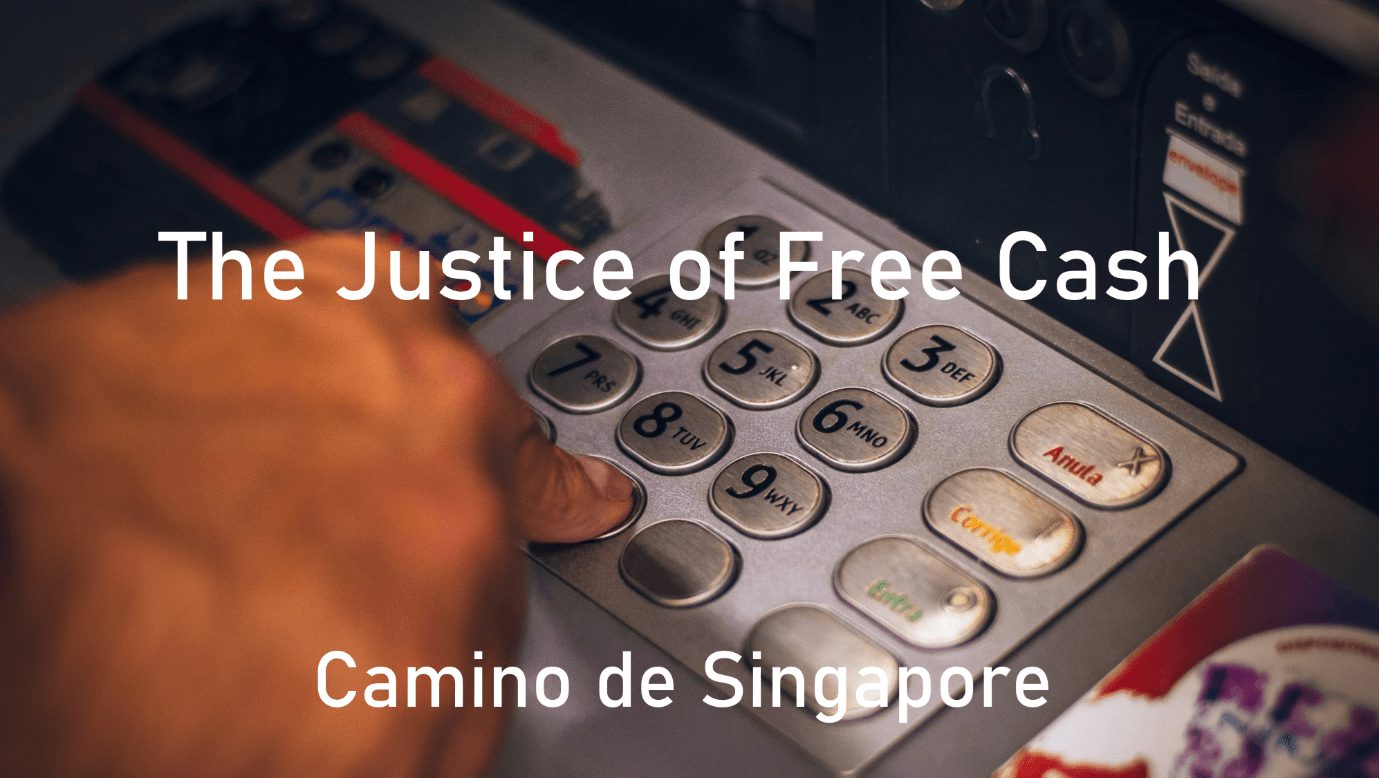No products in the cart.

Recent news reports have showcased a trial of a “no strings attached” cash aid programme by social service agency AWWA. The cash assistance provided was unconditional – the beneficiaries who qualified for the scheme did not need to meet additional conditions, such as securing employment. This approach is considered novel in the Singapore context, where such programmes are usually designed with the intent to minimize abuse.
The design of existing support programmes
Existing support programmes usually are designed with the priority of preventing abuse. Hence the giving of needed items like food or home supplies is usually preferred over giving cash. It is more difficult for people to cheat the system and resell those for profit.
Where cash support is given, it usually comes with conditions, and also require a lot of personal information from beneficiaries on a regular basis to prevent help from going to ineligible applicants
It has been argued that unconditional cash aid programmes might tempt persons to exploit loopholes. Furthermore, cash aid is usually disbursed over a fixed period of time with no periodic checks if beneficiaries are still in need. In addition to fears over abuse, this similarity might give rise to a feeling that such easy access to cash is undeserved.
The advantages of a “no strings attached” approach
The trial by AWWA has been helpful at showcasing important advantages. Cash is more flexible, so households with differing circumstances can choose to use them on the most urgent needs. Since the disbursement takes place over a fixed period of time, eligible families can be assured that they will always have access to this aid without further eligibility checks. This meant that there is less stress or fear that they might miss the next payout. This helps improve the mental health of families in the study. Better mental health then leads to better familial relationships. Moreover, it also means families are more willing to wait for better jobs that pay more.
What does the Church’s social teaching say?
Most people will agree that those who are in need should be helped. The Catholic tradition goes further, however, as exemplified by the most famous words from St Ambrose’s treatise On Naboth:
“You are not making a gift of what is yours to the poor man, but you are giving him back what is his. You have been appropriating things that are meant to be for the common use of everyone. The earth belongs to everyone, not to the rich.”
In other words, we owe a debt of justice to those who do not have enough because creation is a gift of God to all. This is one reason why the Church’s mission can never be separated from service to people in need.
Secondly, since the cash aid approach allows beneficiaries to decide what to prioritise and how to do so, giving them this freedom is a form of respect to the person’s dignity. This is important because every person is made in the image of God.
Next, the flexibility inherent in unconditional cash support programmes empowers individuals to make decisions in the spirit of the subsidiarity principle. This means that since they know their situation better, they should not be forced by others on how to make decision for their own lives.
Finally, the Church seeks the common good, which is acquired when every person can achieve fulfilment as easily as possible in a society. Thus, assistance merely to help one survive is not sufficient. It has to promote flourishing. In the context of cash aid, the continuity and accessibility of unconditional cash transfer promote mental well-being and incentivise the wait for higher-paying job offers. These are important if one is to grow out of poverty and develop.
Is one approach better than the other?
To be clear, researchers in the AWWA trial are not claiming that cash aid is a better form of assistance. Cash aid and the more traditional approach have their respective uses.
Similarly, as Pope St John Paul II made clear in Sollicitudo rei socialis, the Church offers general principles but not technical solutions. We are not necessarily in favour of one approach over the other. If both serve the common good well, then let us have both.
The Church, then, has no objection to unconditional cash transfer as long as it is distributed justly and prudently. The Catholic tradition has always preferred the both/and approach rather than the either/or. If we can have as many approaches as possible that respect a person’s divinely-conferred dignity, all the better!
